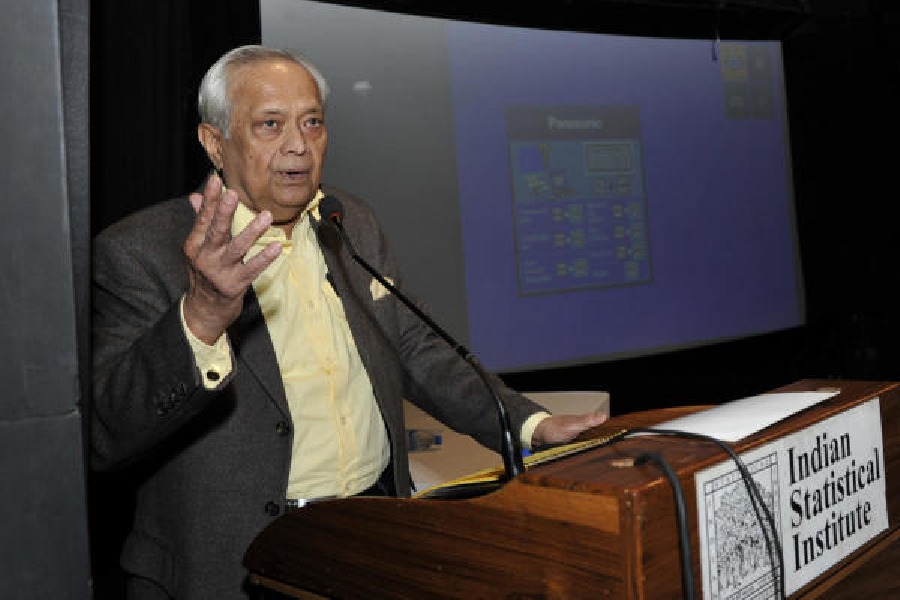He was learned, well-versed in many subjects, but he carried his erudition as lightly as a feather. He recalled his days at Cambridge, where he researched physics, most casually, often as a “wayward student of physical sciences”.
He was courteous and affable. He used to beckon me to his grand drawing room on the ground floor of his palatial home on Elgin Road, served beer and chicken roll without fail, and then started attending to the questions that I had prepared for him to construct the entire interview. I was diffident because I am not a student of science. But he dispelled my fears.
His favourite book was Rabindranath’s Biswaparichay, which he religiously prescribed as the guidebook for all beginners of science. He addressed Rabindranath unfailingly as Gurudev and condemned the vitriolic treatment that was meted out to Amartya Sen at Gurudev’s university.
Bikash-da repeatedly stressed that a scientist worth his salt should be inspired by spiritualism and creativity. He never failed to recall that Isaac Newton spent hours reading religious texts; Einstein was an ardent devotee of Western classical music; his friend, Nobel-laureate physicist Roger Penrose marvelled at the mystery of the death and rebirth of stars; and his guru, Homi Bhabha, remained immersed in Subhalakshmi’s magical music.
After reading my reverential critique of Bertolt Brecht’s poetry in the Bengali literary magazine, Desh, he told me: “You have written a splendid article. You have to give me a book of his poems translated into English. I admire his creative output and, more so, because he was implacably opposed to the Fascists.”
In one interview after another, he assailed the Sangh Parivar for diluting and
vitiating the intrinsic worth and grandeur of science. He debunked so-called Vedic mathematics and accused the Hindutuavadis of trying to palm off half-truths, legends, myths and plain lies as science.
For those who sputtered that the Vedas were the source of all knowledge and wisdom, he recalled the illustrious scientist, Meghnad Saha’s, acerbic comment: “This is not only nonsense, but arrogant and dangerous nonsense.”
When I disclosed to him that the NCERT had deleted the Mughal age from history textbooks, his protest was firm and emphatic. He said: “I’m proud of my Mughal heritage.”
I recall one interview in which he blasted the claims of the half-baked proponents of the “Indian knowledge system”. He analysed the Occidental spiritual tradition and its heritage of science and philosophy to underline that Galileo, Darwin, Freud and Marx were intrinsically autonomous. They did not derive their knowledge from any pseudo-mystical Oriental source.
Simultaneously, like Amartya Sen, he was most respectful to the glorious heritage of Indian science, to Bhaskara, Aryabhatta, Varahamihira and to their modern disciples — C.V. Raman, Jagadish Chandra Bose, Satyendranath Bose, Meghnad Saha, Homi Bhabha and others.
I shall never forget his eloquent explanation of Aryabhatta’s signal contribution. Sipping his scotch slowly, he stressed in an inspired tone: “He didn’t think that eclipses were caused by Rahu but by the earth’s shadow over the moon and the moon obscuring the sun. He talked of the diurnal motion of the earth and the appearance of the sun going round us.”
By descent, Bikash-da was a zamindar. But he was a dignified commoner to the core. I shall miss him dearly, I shall forever cherish the warm, unforgettable evenings I spent with him.
These were not mere evenings, but intimate, epistemic sessions.
Professor Subhoranjan Dasgupta was a close associate of Professor Bikash Sinha
